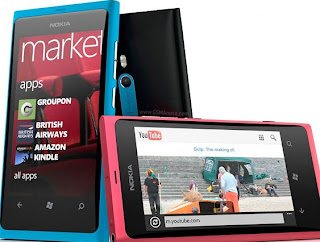At WWDC - 2012 , the major 'Software' Announcement was iOS 6 ,which according to Apple is 'The World's Most Advanced Mobile Operating System' . And despite the fact that OS X Mountain was also updated iOS 6's announcement was much more anticipated as Apple has a large user base of iOS followers viz. iPod Touch, iPhone and the iPad (as compared to Mac's), . And from what was announced , it seems like Apple had a mantra during iOS 6's development ' if it ain't broke, don't fix it' . Being an Apple fan , I can count upto hundreds of new features , that the Cupertino Giant added in the new Mobile Platform . But does all of those 'additions' really matter to the masses or at-least to me ?
Lets' have a look..
According to Apple, iOS 6 has more than 200 new features.
First of all Google Maps, as speculated are officially out from iOS . And taking its place is Apple's own Mapping Services build from scratch . And from what I could tell watching the keynote and a few demo, Apple Maps looks awfully similar to what Google announced a few days back.
Both offers a flyover feature and while Google calls its as Tour Guide, Apple chose the name 3D Flyover (not iFlyover). We hope Apple's is better, because if not then there is no point in kicking Google Maps out of iOS.
One additional feature Apple has in its mapping services is the Siri integration.
iPhone 4S's virtual assistant, Siri got upgraded. Siri can now tell you Game Scores, Restaurants - can even book a table for you via OpenTable, Movies in multiplexes and finally Siri can also launch apps.
One more update about Siri is that now it is not only exclusive to iPhone4S. 'The new iPad' will now boast the virtual assistant too.
iOS 6, like Twitter, got Facebook integration too (*cough* Windows Phone *cough*).
During an incoming call, you can now slide up the call alert screen, and either reply with a custom message or you can choose 'Remind Me Later' option. You'll then be promoted to choose when to remind you . One excellent feature is 'Remind Me, when I leave . Choose it and you'll be reminded by the iOS device when you leave your location.
Another Similar feature, Do Not Disturb, Check it and no Pop Up Notification will alert you.
Next up is Safari, it got iClouds Tab feature - with it you can explore the same tabs on your desktop/Mac's Safari and your iOS device. Safari can now save web pages for offline reading too. In landscape mode, safari turns fullscreen.
There's another feature called 'Smart App Banners' .
There is 'Passbook' - An app which can scan and then combine all of your passes in one place using the QR Code.
Then there is improvement in Guided Access - Accessibility options.
This is what the new iOS has got recently.
Apple did what they do best. Make a good product, in this case iOS 6, and market it well.
iOS 6 is good update but not great. Some excellent features are(according to me) iCloud Tab feature, Offline saving of webpages and the new incoming call alert. But others fail to impress. Well, that's my impression . Let us wait till fall and see for ourselves.







